
8 minute read
YOUR ENVIROMENTAL PEST AND LAWN PROFESSIONALS


Advertisement
must have no age restrictions and be suitable for families with children.
The state is requiring multifamily zoning near public transportation as a way to create more housing where an infrastructure of commerce – shops, restaurants, schools and parks – already exists. The strategy also aims to minimize traffic and environmental impacts of increased populations by situating denser housing districts near public transportation access.
Requirements for each municipality differ depending on their square mileage, location and level of MBTA service. For MBTA CA compliance, communities under the law’s jurisdiction are separated into four roughly concentric categories:
1) communities hosting rapid transit (‘T’) service (mostly encircling Boston); 2) those with commuter rail service, slightly further out; 3) communities adjacent to those hosting MBTA service; and 4) adjacent small towns. Deadlines to enact zoning changes are staggered for each of the four category communities. All rapid transit communities, such as Brookline, have a deadline of Dec. 31, 2023. Commuter rail and adjacent communities, Dec. 31, 2024; and adjacent small towns, Dec. 31, 2025.
A Development Plan For Harvard Street
For its part, Brookline’s Department of Planning and Community Development (DPCD) outlined a plan to rezone sections of Harvard Street, a main, mixed-use thoroughfare that intersects with a T line. The plan would create a “formbased” zoning district for multifamily development as of right with conditions that would give the city some control over the character and architecture of new buildings. For example, the city’s Harvard Street plan would enforce a four-story maximum on buildings, to remain consistent with existing structures.
Form-based planning is a set of development standards that emphasize architectural aspects – i.e., form – and context of new-built structures and environments, as opposed to traditional urban planning based on the use of buildings. Formbased planning is believed to result in more user-friendly and aesthetically attractive development, with green space, walkways and more mixed use.
Opposition to the DPCD’s plan has been led most publicly by Brookline by Design, a citizens’ advocacy group focused on the built environment. Brookline by Design submitted a letter to the select board calling on the town to hold off submitting its preliminary multifamily zoning plan for Harvard Street, and therefore not comply with the MBTA CA. Brookline by Design insists it believes in inclusive development that will create affordable, multifamily housing opportunities. But the group balks at the one-size-fits-all mandates of the MBTA CA, and urges that more time is needed for thoughtful development, and for residents to weigh in on the processes.
“None of what we believe can be realized if we rely on the vagaries of the invisible hand of the market,” notes a published statement by Brookline by Design, “the implicit assumption of former Governor Baker’s MBTA Communities Act and other proposals that address the housing crisis by blindly focusing on deregulation and increasing density.”
A zoning change such as the DPCD is suggesting “requires much more analysis, community dialogue, and consideration of alternatives before making such an irreversible commitment,” the statement says. “Form is important, but form alone will not achieve the overarching goals that we have.”
Brookline by Design’s statement was answered with a published letter from Charles Carey, town administrator, and Kara Brewton, the Planning and Community Development director, to the town select board. Their letter addresses in detail Brookline by Design’s concerns and refutes its notion that the Harvard Street development plan was rushed and did not allow ample community input.
In fact, they write, “developing a formbased zoning proposal for Harvard Street to satisfy the MBTA Communities Act mandate epitomizes the stated goals of Brookline by Design. The organization’s principled objections to this course of action appear to stem from genuine misunderstandings about what has been proposed and what the potential outcomes could be.”
Noncompliance Not An Option
Creating a law demanding more than half the state’s communities to change their zoning ordinances is one thing. It doesn’t guarantee they will comply, especially in municipalities like Brookline that are governed by Town Meeting.
Assisting towns’ efforts in achieving necessary zoning changes is a key provision of the Housing Choice Initiative signed by Governor Baker in January 2021. That law allows every community in the state to approve some local zoning changes via a simple majority vote of the municipality’s governing body, a threshold lowered from a required supermajority, or two-thirds, vote. The zoning change law was explicit in including “amendments to zoning ordinances and bylaws allowing, as of right, multi-family housing or mixed-use development” among its allowed applications for simple majority vote approvals.
The penalty to communities that do not comply with the MBTA CA will include ineligibility for state grants from MassWorks, Housing Choice and the Local Capital Projects Fund. That could mean forfeiture of potential millions of dollars for a community that doesn’t comply with the law, dollars that could be allocated for a range of infrastructure, capital improvement, community investment, housing development and other programs.
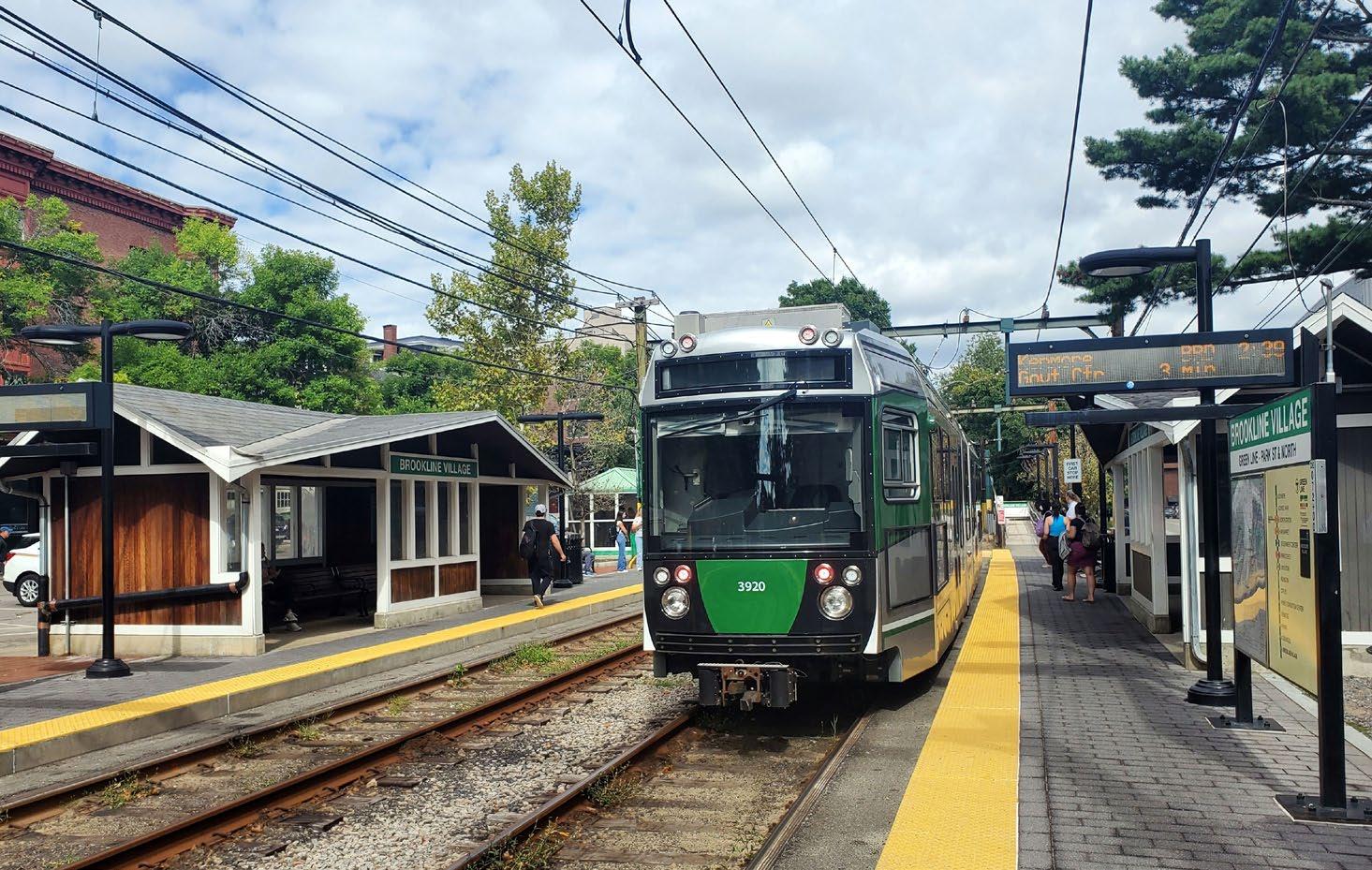
For Brookline, with its Town Meeting governance, that voting threshold could be the difference in its compliance with Section 3A or not.
There also may be higher stakes for noncompliant communities beyond just loss of local funding. On March 15, Attorney General Andrea Campbell strongly reiterated that MBTA CA zoning regulations are mandatory, not a choice for communities that might opt to forfeit state funds. Campbell issued an advisory stating that “MBTA communities cannot avoid their obligations under the law by foregoing this funding. Communities that fail to comply with the law may be subject to civil enforcement action.”
Presentation Of The Plan
Brookline held an online Harvard Street Community Visioning Kick-off town-wide meeting on March 15 to publicly introduce the plan. More than 250 residents attended the meeting, which included a presentation of the Harvard Street development plan by Maria Morelli, senior planner for the town of Brookline.
Much of Morelli’s presentation explained the benefits of form-based zoning over conventional zoning. Foremost, form-based zoning applies set standards objectively, she said, rather than relying on boards for subjective determinations in zoning and permitting decisions. Form-based planning also considers “the big picture,” said Morelli.
“What form-based zoning is really interested in is walkable communities,” she said to the meeting. “It’s less interested in separation of uses.”
The town’s Harvard Street plan wants to bring zoning of the central thoroughfare into line with development goals of accommodating multifamily housing, mixed use and pedestrian accommodation, Morelli explained. Existing zoning ordinances do not align with town goals for the area, she said.
The proposed plan would also enable the town to have more oversight of mixed-use and multifamily housing development while complying with the MBTA CA, she said.
Balancing Local Control And Mbta Ca Compliance
As one of the larger communities under the MBTA CA, and one governed by representative Town Meeting, Brookline may be an unwitting example for compliance. If a mid-sized city like Brookline can pass zoning changes through Town Meeting, it may act as a catalyst for other municipalities to comply as well. If not, it could trigger the opposite effect.
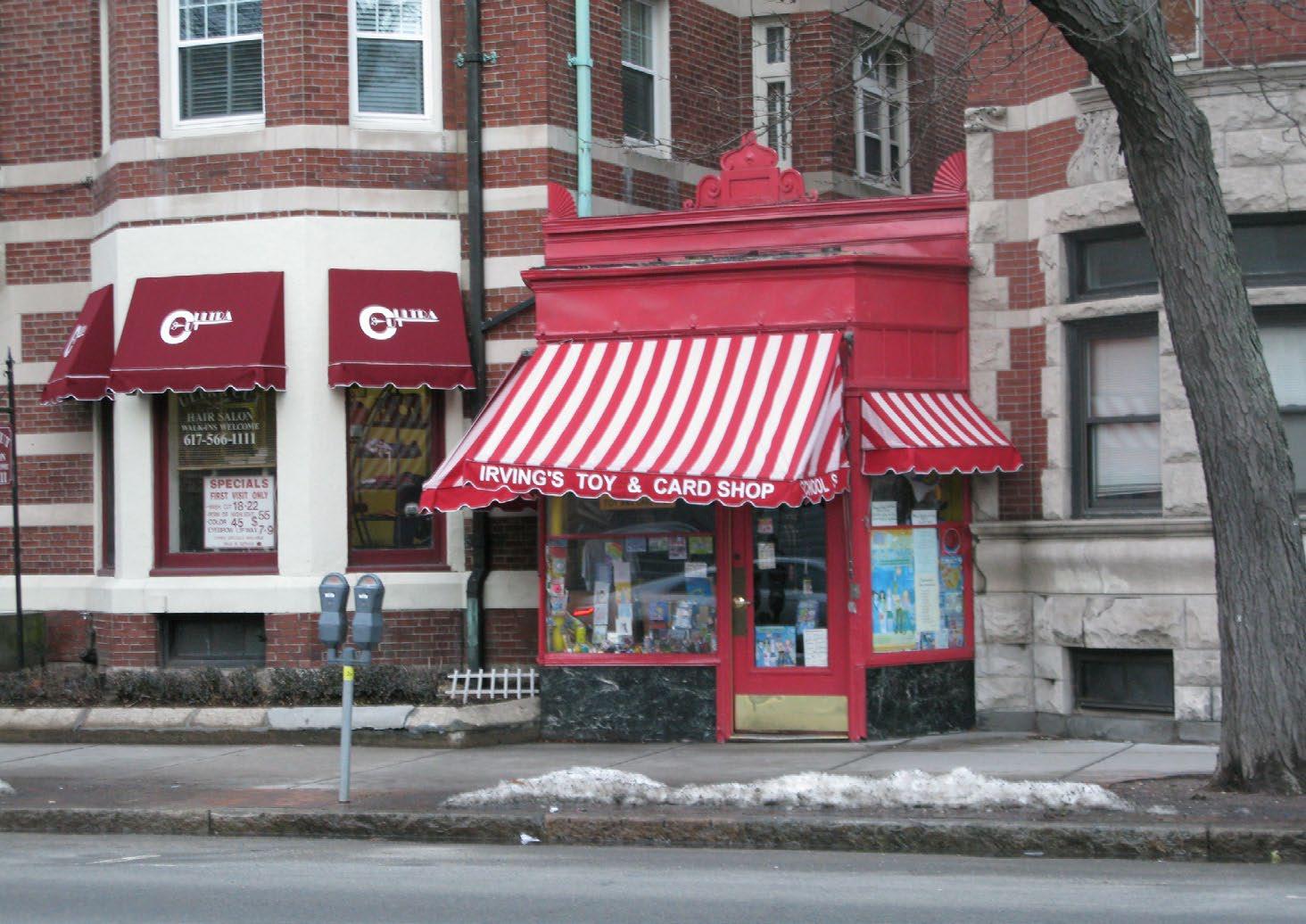
To some residents, Brookline is already overbuilt and densely populated, and criticism of multifamily development centers around tolls it could have on increased school populations, traffic, medical services and other infrastructure.
Still, while Brookline is an urban and suburban community next to Boston, its existing density is on par with other, nearby communities of similar size that are finding ways to comply with the MBTA CA.
Brookline has population density of 9,293 persons per square mile within its 6.8 square miles. By comparison, nearby Malden, with 5.1 square miles and a population of 65,000, has population density of 11,788. Smaller Somerville’s density is 20,044 persons per square mile. (For reference, the most densely populated city in the U.S. is Guttenberg, N.J., with 57,000 persons per square mile.)
Brookline town representatives look to bring the Harvard Street development plan before voters in the fall in preparation for submission to DHCD by the December 31 deadline. Multiple public presentations and calls for input will take place in the interim.
The MBTA CA, while applying a set of standards statewide, left room for individual communities to shape multifamily housing development according to their respective goals and on-the-ground realities. Brookline’s leaders seem to be taking advantage of that allowance while balancing compliance with the law. ML
Point your camera app here to read more online
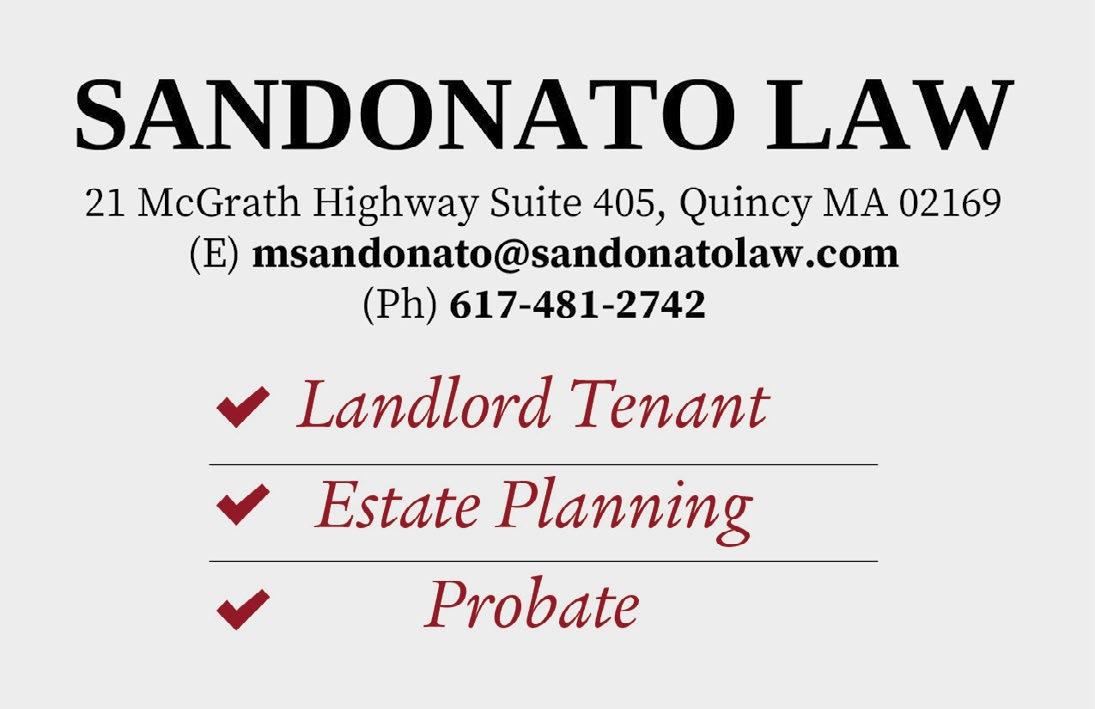
Compiled by Eric Weld, MassLandlords, Inc.
An occasional roundup of MassLandlords media mentions and appearances by association representatives
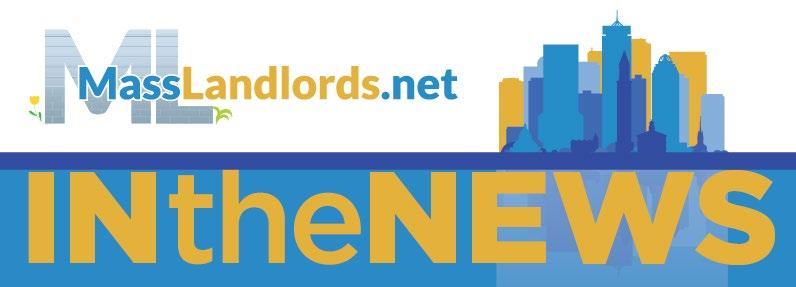
The inaugural edition of MassLandlords In the News features numerous media appearances relating to the recent lawsuit filed against the City of Boston to enforce the release of public records regarding the appointment of members of Mayor Wu’s Rent Stabilization Advisory Committee.
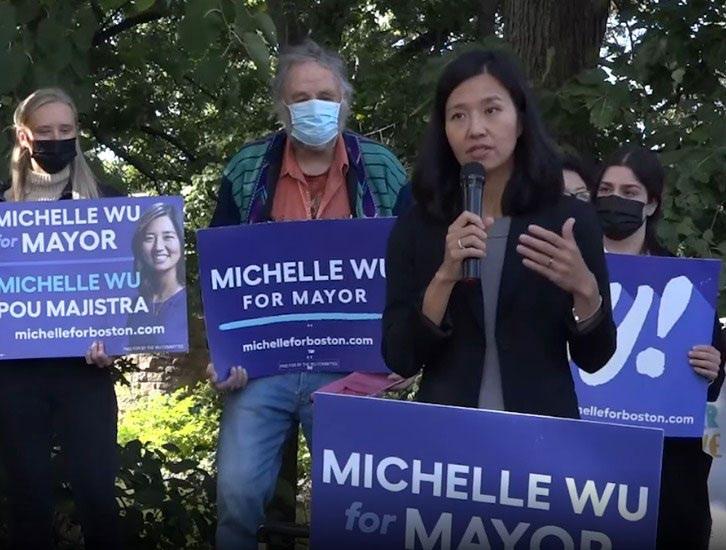
THURSDAY, MARCH 2
MassLandlords Executive Director Doug Quattrochi spoke as a panel member on WBUR’s Radio Boston, hosted by Tiziana Dearing, on the topic of Boston Mayor Wu’s rent control proposal. Other panelists were Jesse Kanson-Benanav, director of Abundant Housing MA, and state Representative Mike Connolly, representing Cambridge and Somerville. Listen to the program.
TUESDAY, FEBRUARY 28
Doug Quattrochi appeared live as a guest on WBZ Radio’s Nightside with Dan Rea, discussing rent control, Boston Mayor Wu’s rent control proposal, and the MassLandlords lawsuit against the City of Boston for public information regarding the mayor’s Rent Stabilization Advisory Committee.
Listen to the program.
An article on GBH radio by Saraya Wintersmith featured comments by Doug Quattrochi and the MassLandlords lawsuit against the City of Boston. “This rent control proposal could have gone any number of ways, but to us as small landlords, it seems to be the result of developer lobbying,” said Quattrochi in the article. “We looked at who was on the
Rent Stabilization Advisory Committee and, in terms of campaign dollars donated, it’s all developers. And you look at who’s exempted under the rent control proposal and it’s developers.”
Read the article.
MONDAY, FEBRUARY 27
On Boston radio WBUR: an article about the MassLandlords lawsuit against the City of Boston regarding the Rent Stabilization Advisory Committee. “We really want to understand how this committee, and how this proposal, came to be,” said Executive Director Doug Quattrochi.

Read the article.
An article on boston.com by Abby Patkin outlines the MassLandlords public records case against the City of Boston, quoting from the news release announcing the lawsuit and the complaint filed in Superior Court. The article includes a response from Mayor Wu to the lawsuit. “I am sure that everything is going to get sorted out on the transparency side,” said Mayor Wu for the article. “It is our commitment always to follow the public records law to the fullest extent that is possible and even to go beyond that where we can.”
Read the article.
WBZ News radio also aired an article mentioning the MassLandlords lawsuit, quoting a response from Mayor Wu to the lawsuit during an appearance on WBUR. “We know that many of the special interest groups who might be either listening to fearmongering or practicing fearmongering here really are just trying to stop a policy that people are scared of,” said the mayor. “Whether it’s a group that is trying to put a lawsuit forward to just add more news and make sure that there’s as much potential delay in the process as possible… – this is a different proposal that we’re putting forward now compared to what used to exist in Massachusetts.”
Read the article.
FRIDAY, FEBRUARY 24
On the day MassLandlords announced its lawsuit against the City of Boston, Universal Hub published an article generally explaining the suit and quoting from the complaint.
Read the article. ML
Point your camera app here to read more online






